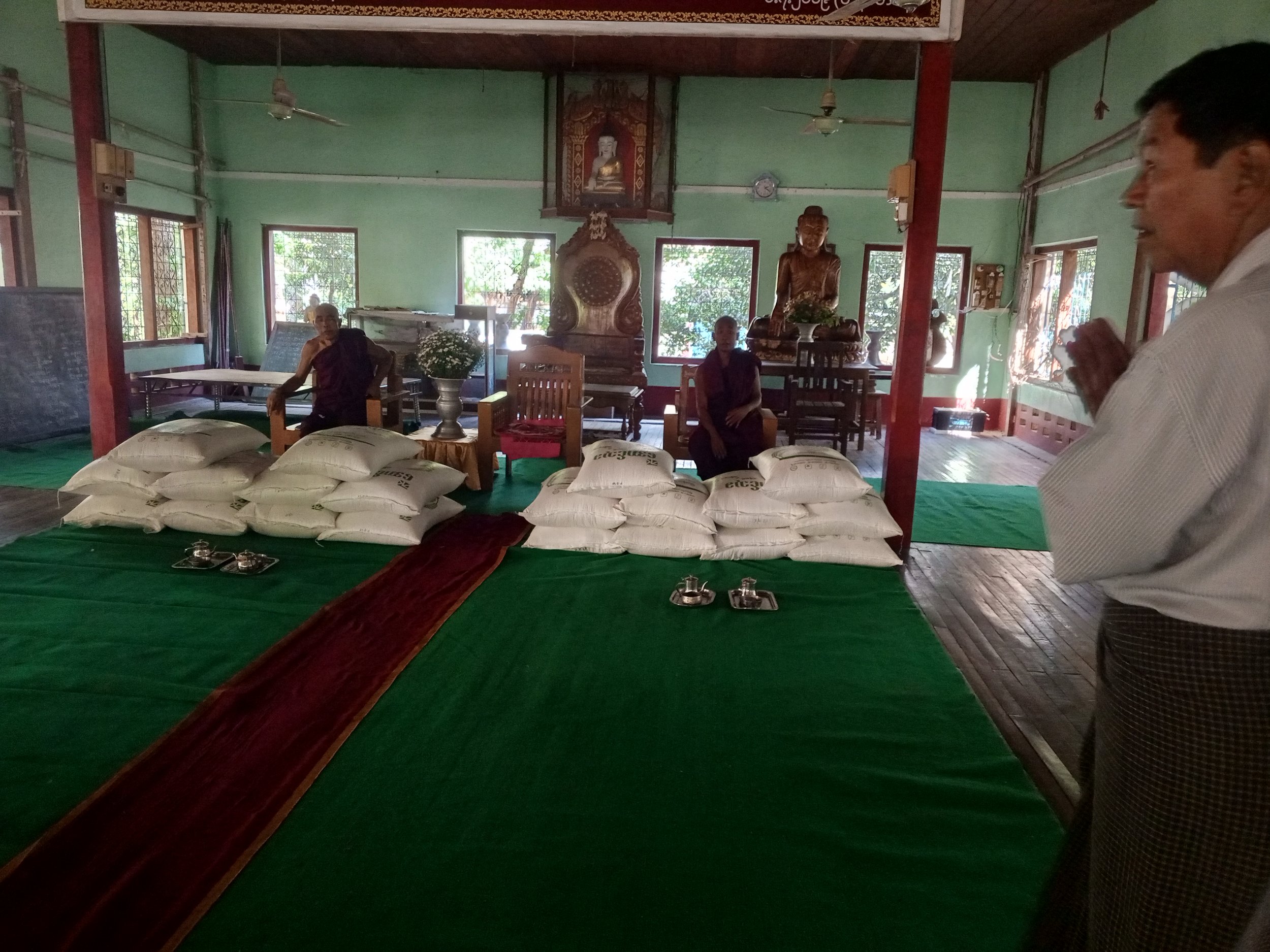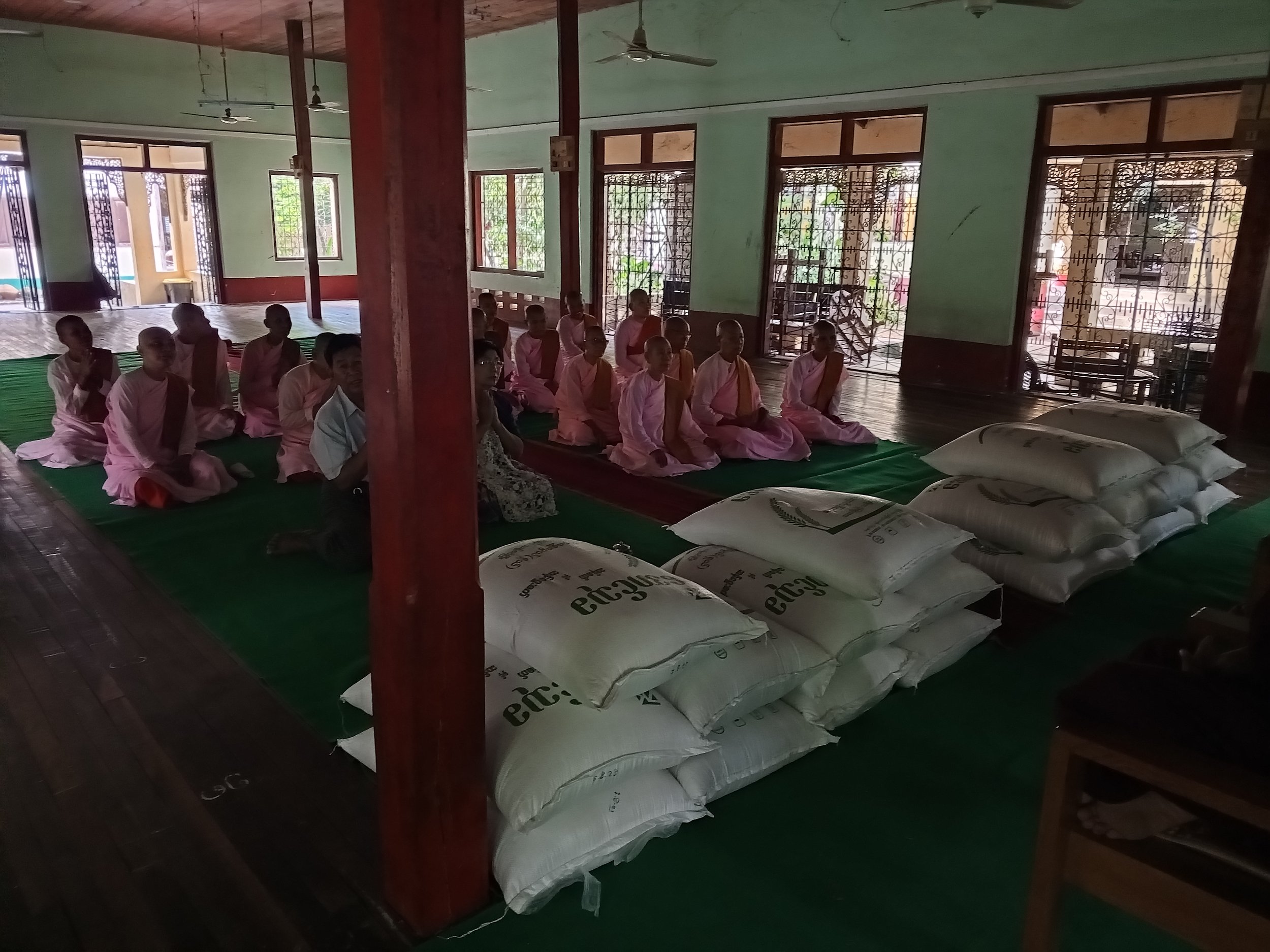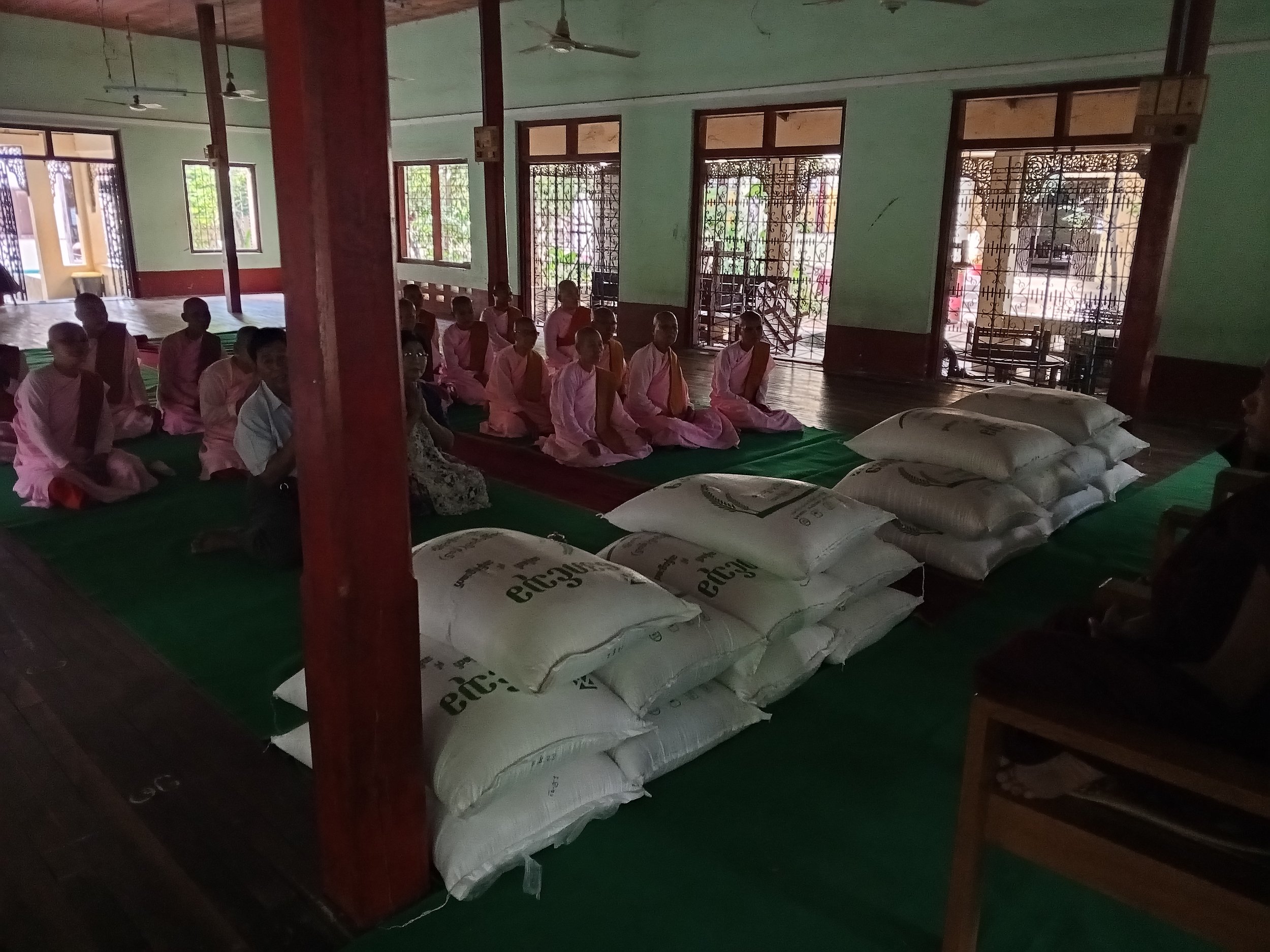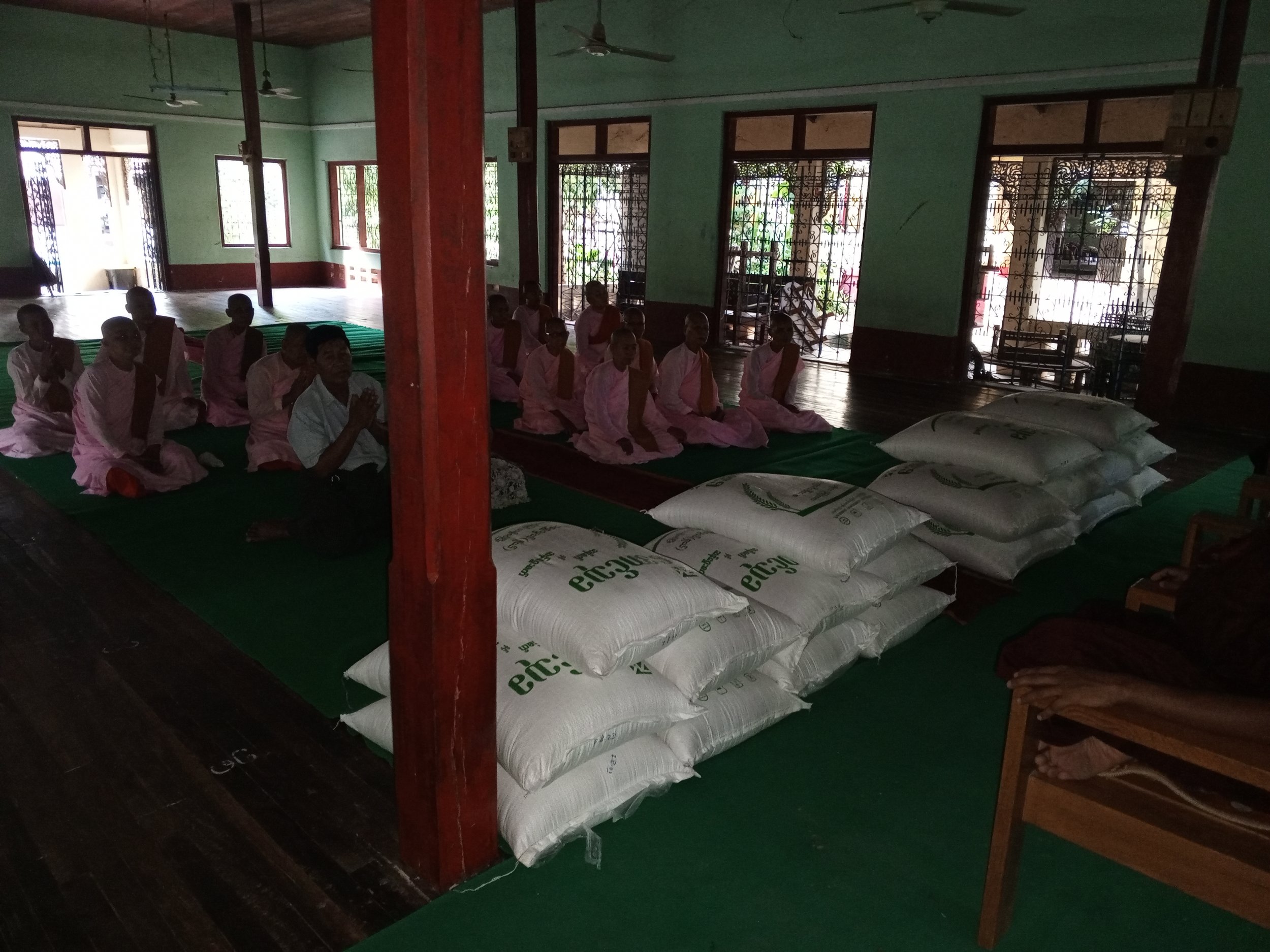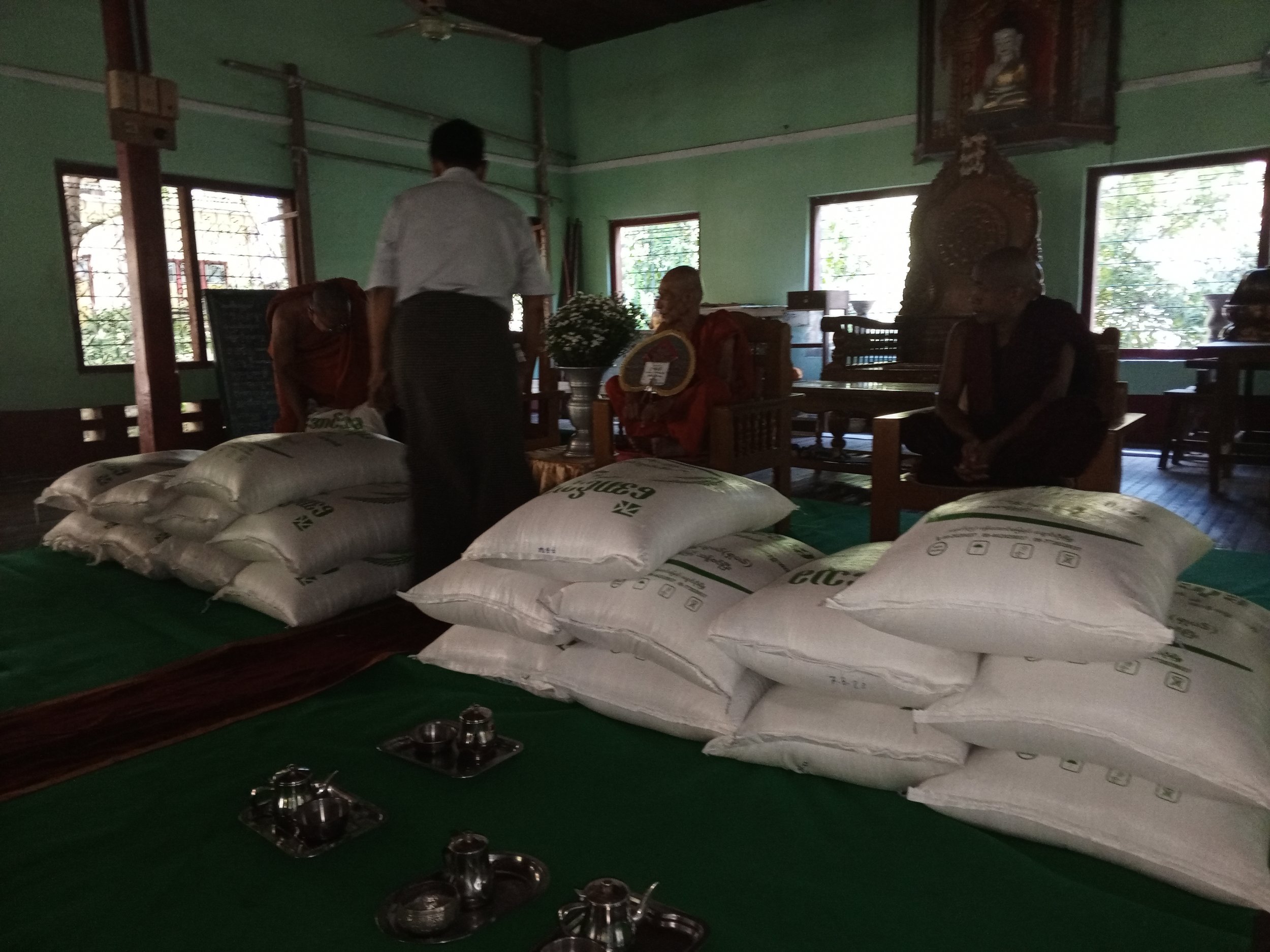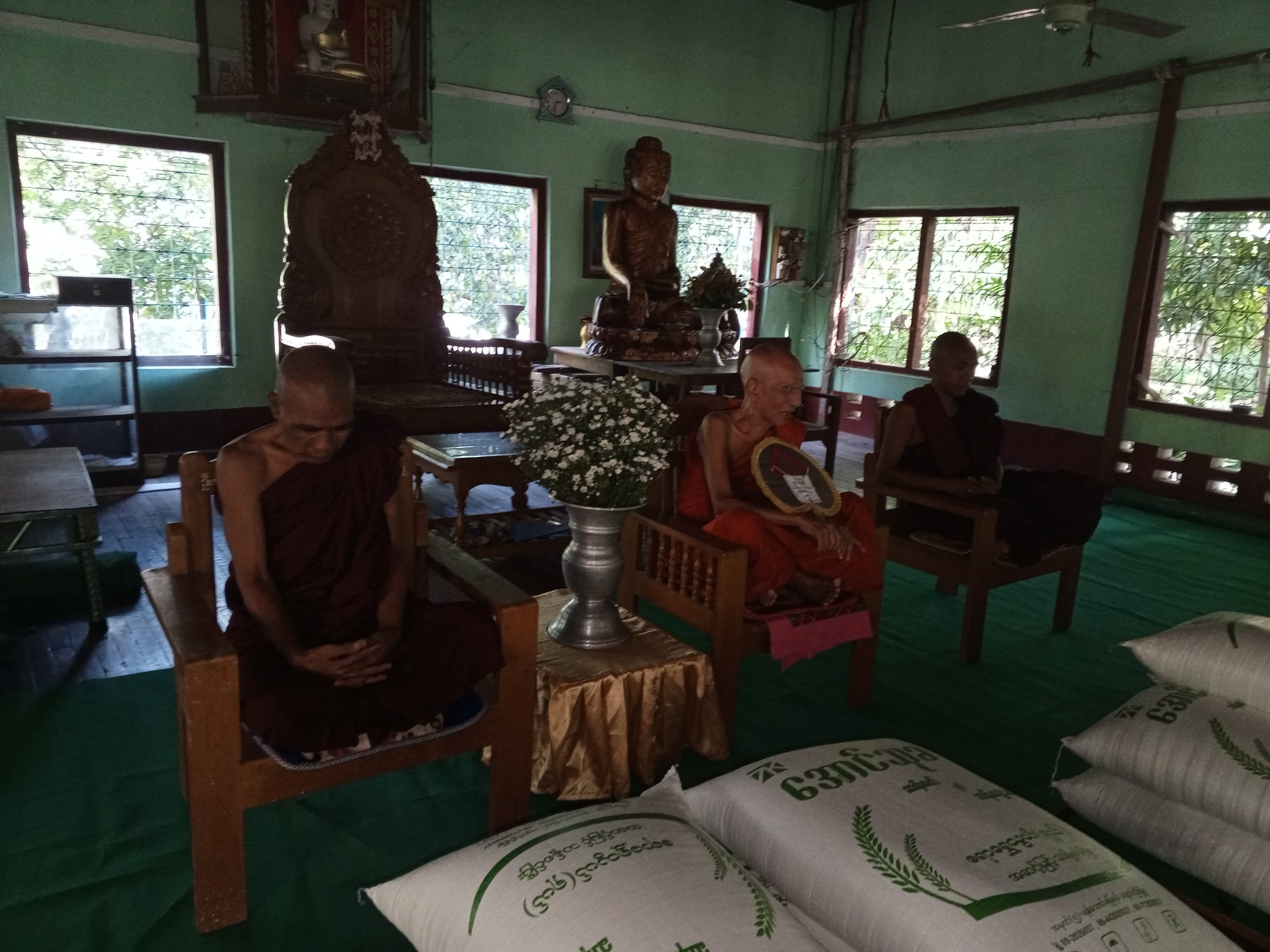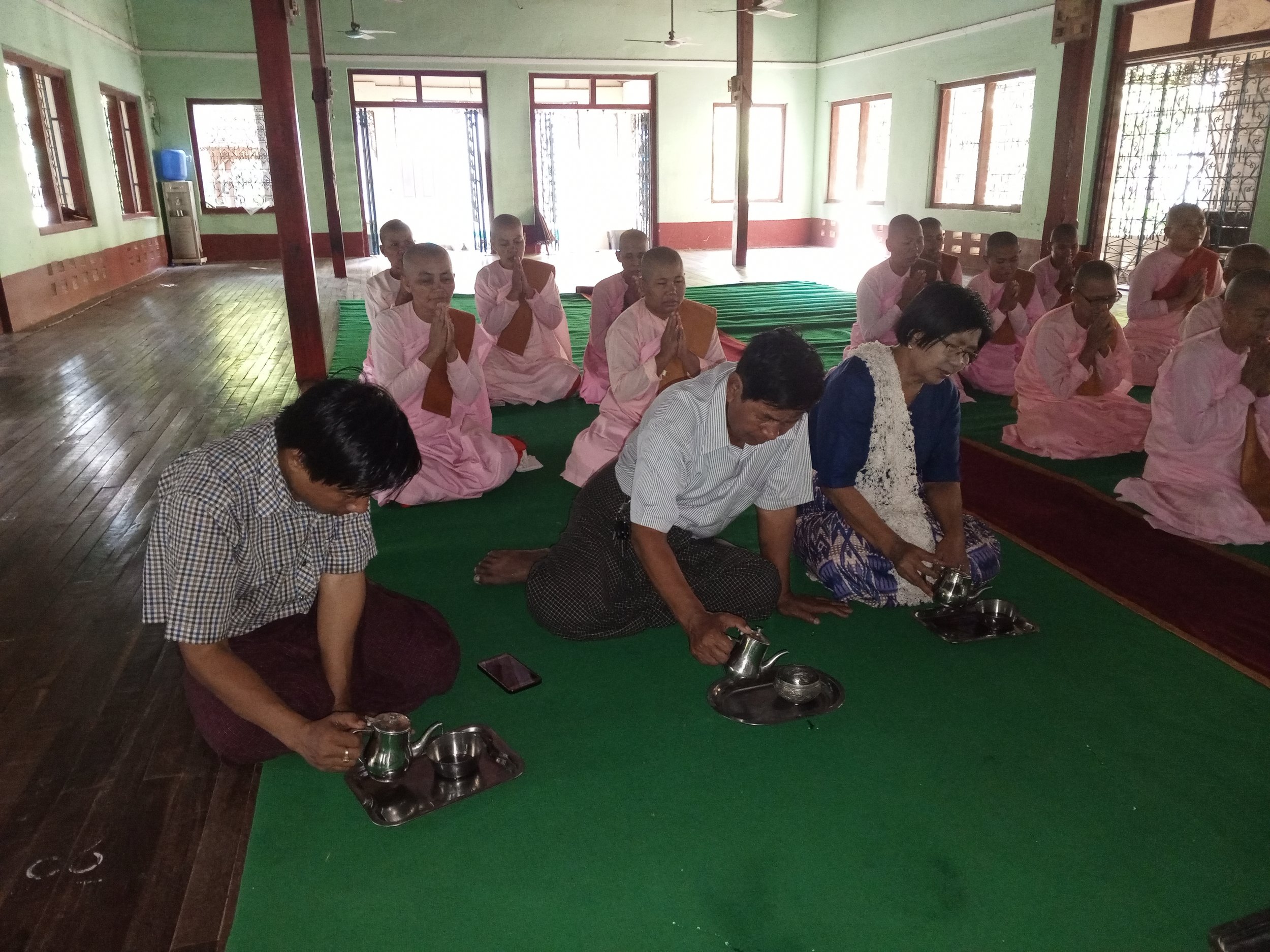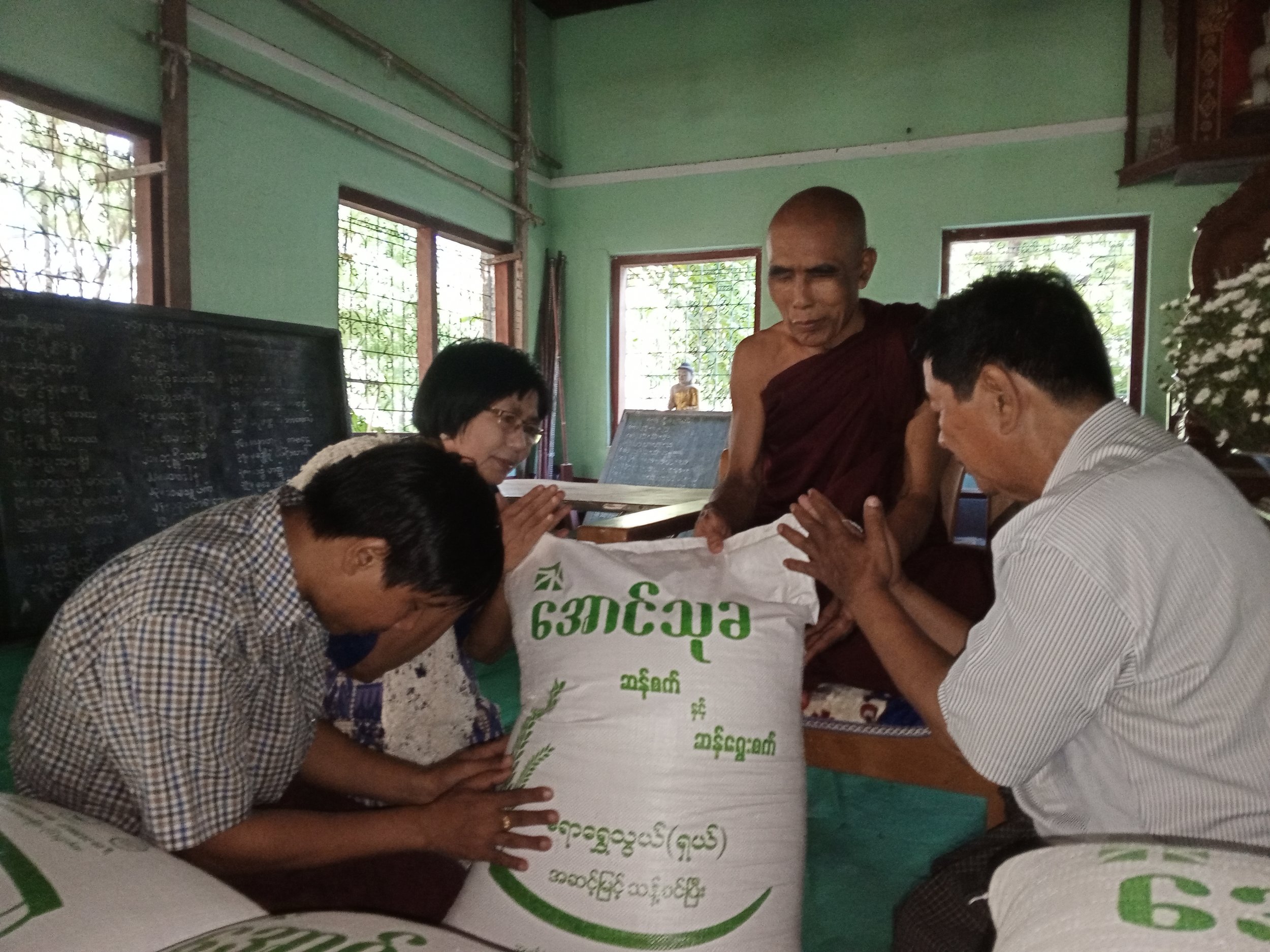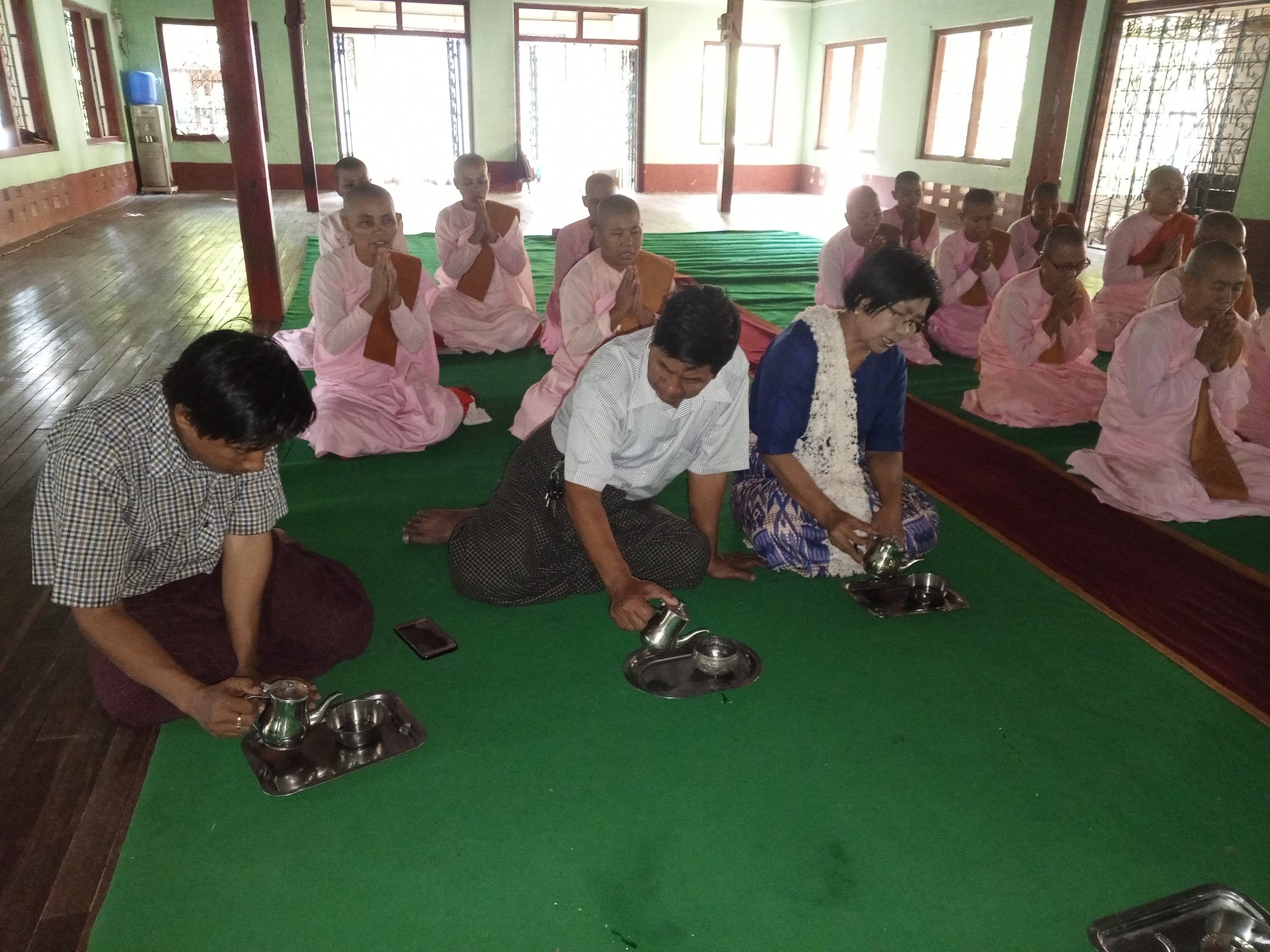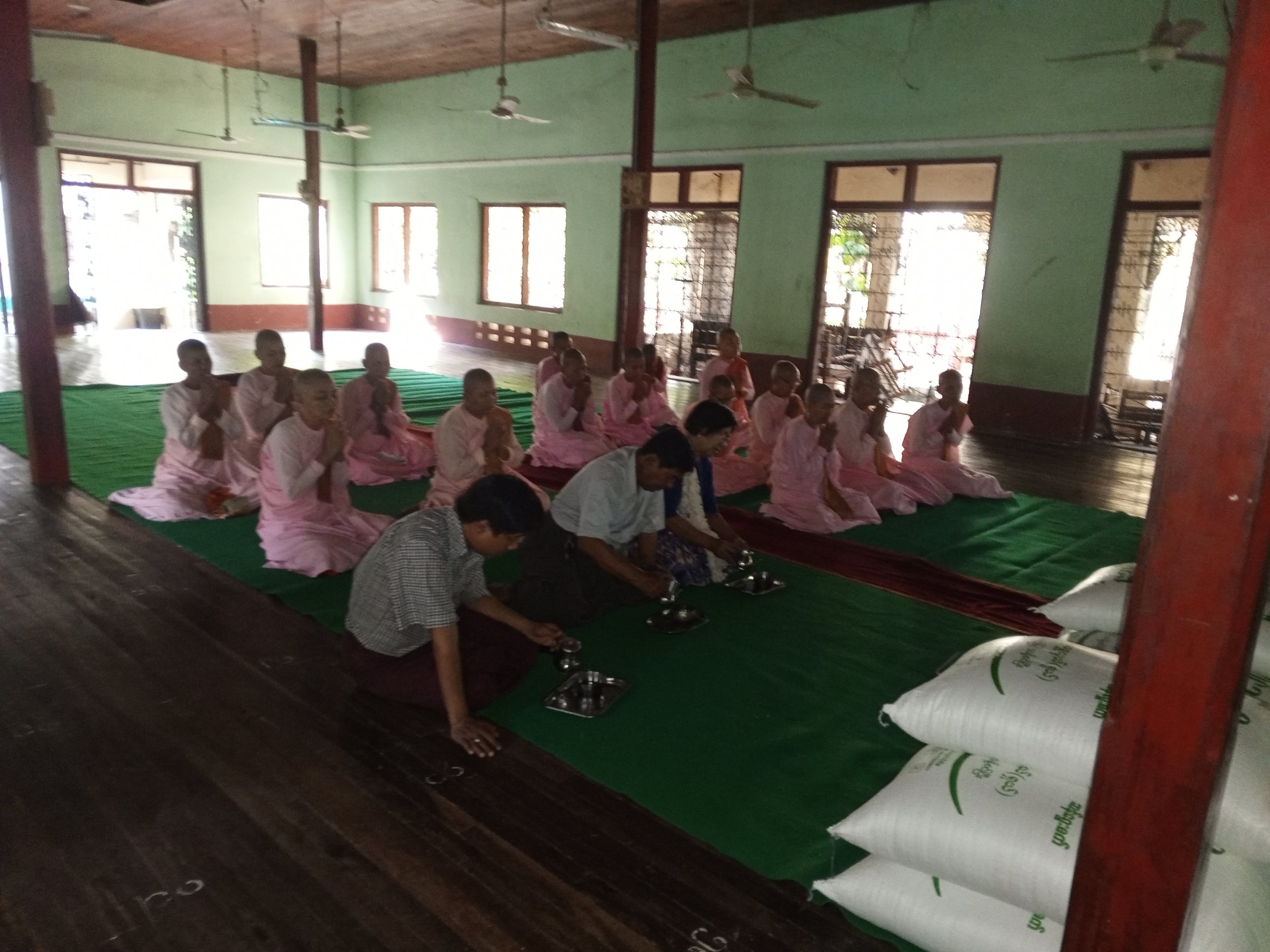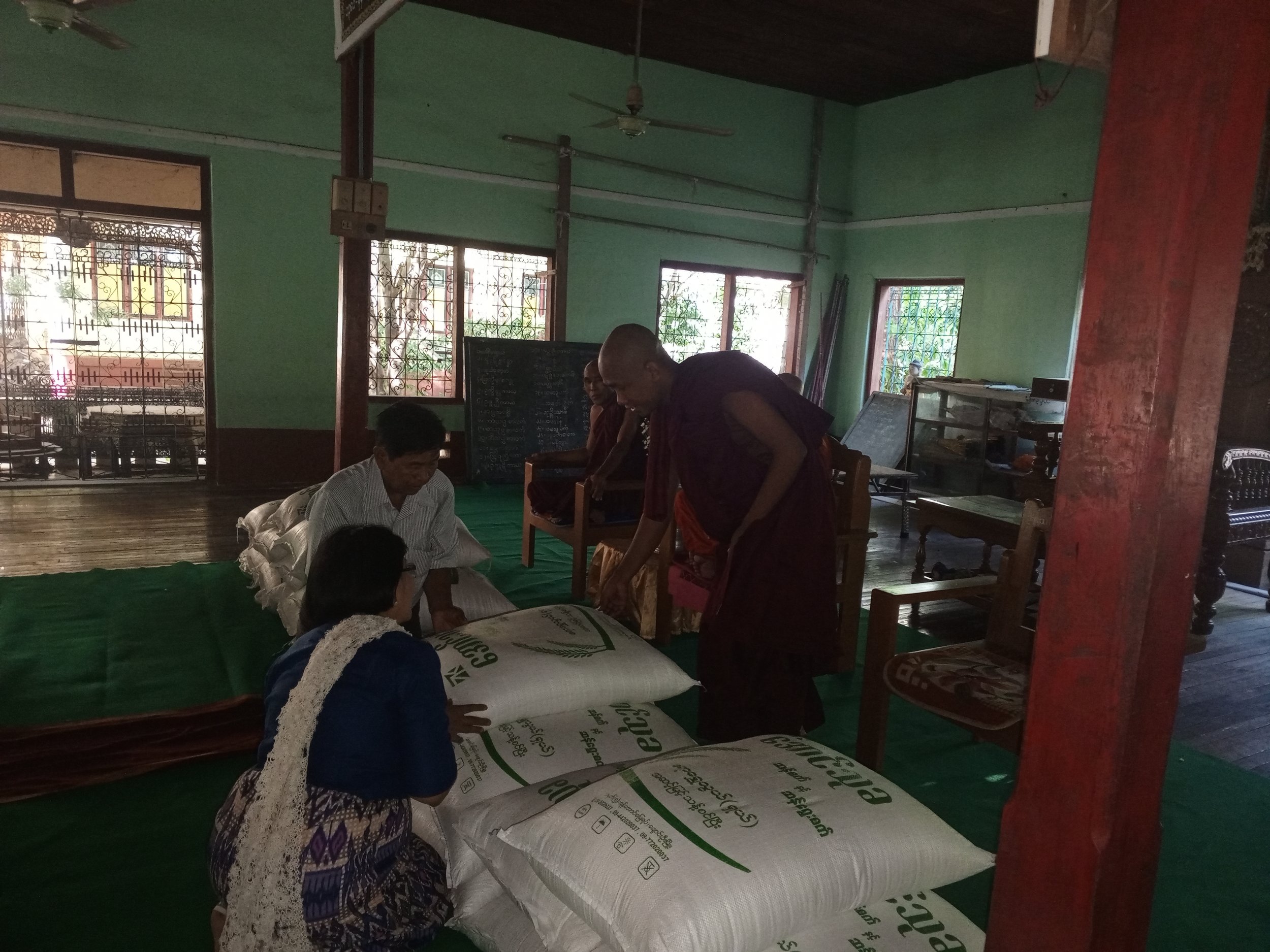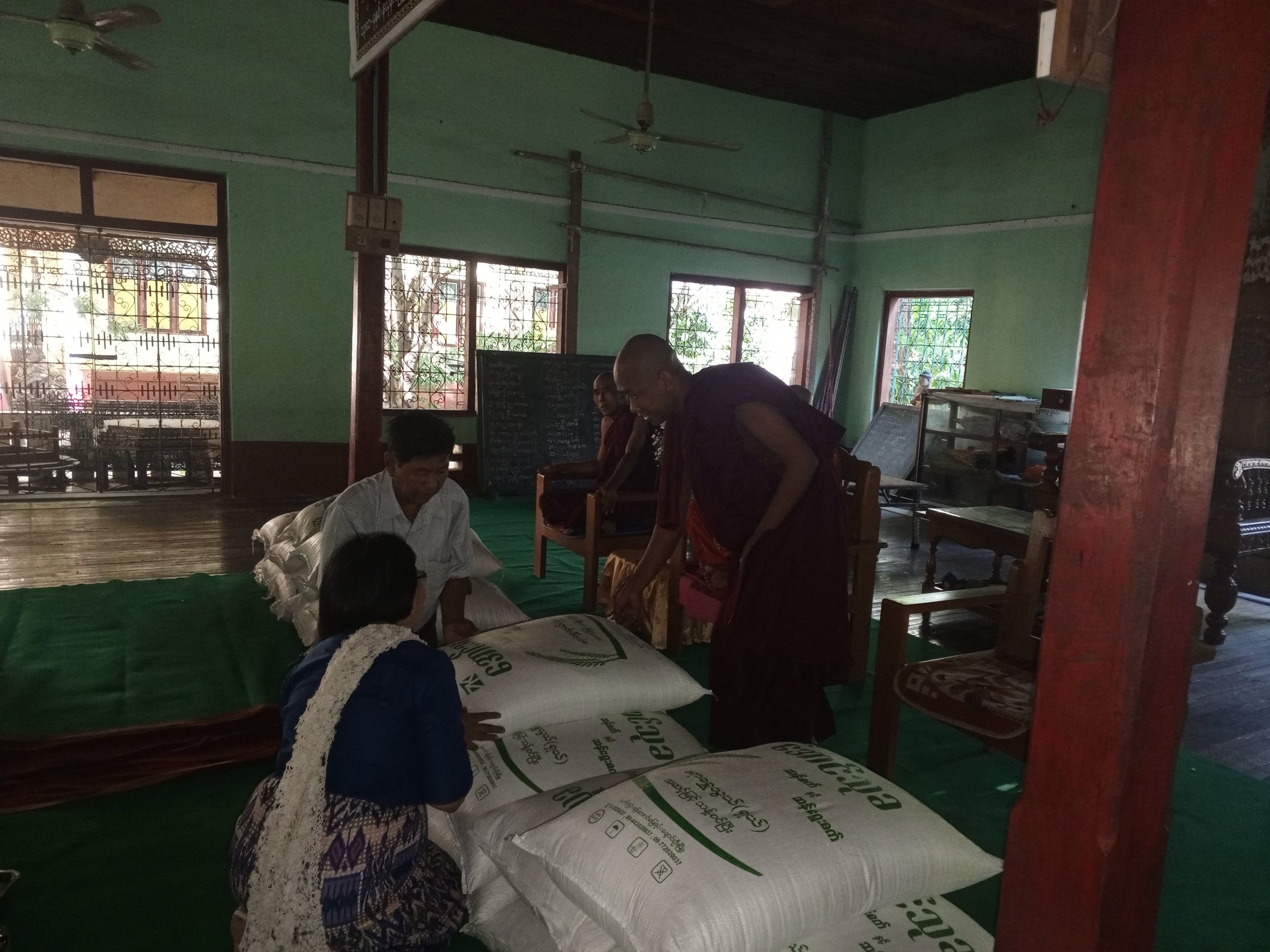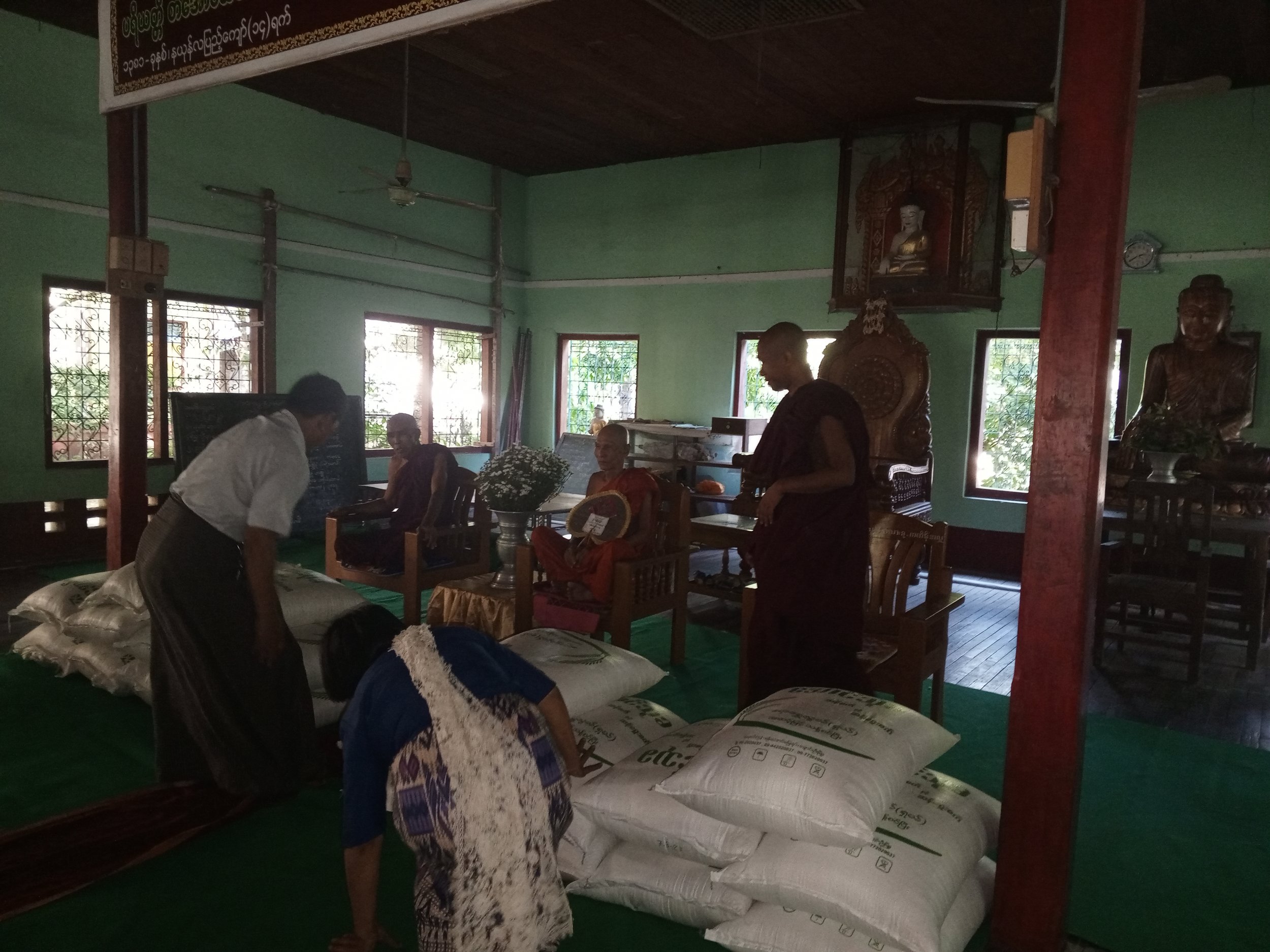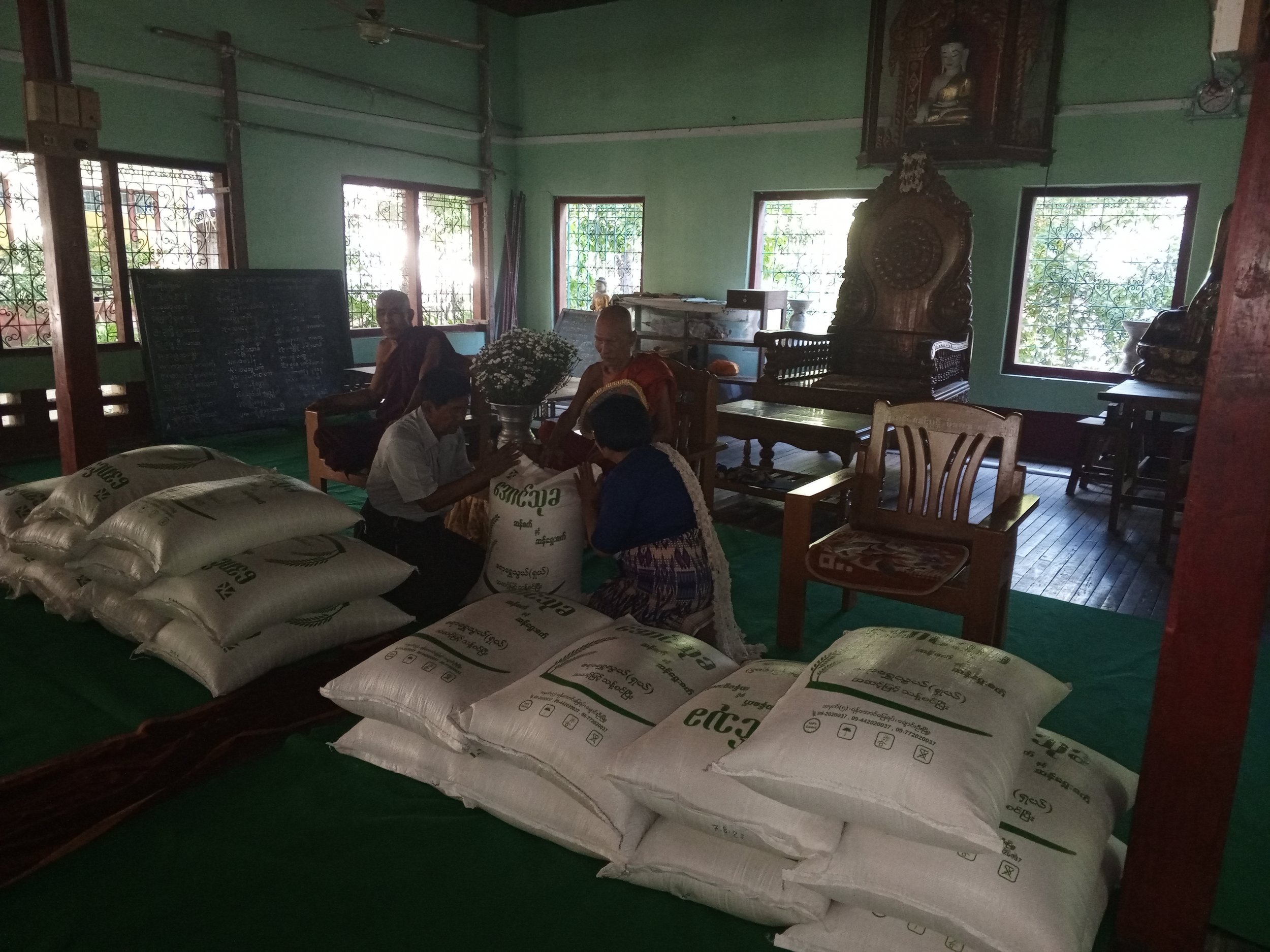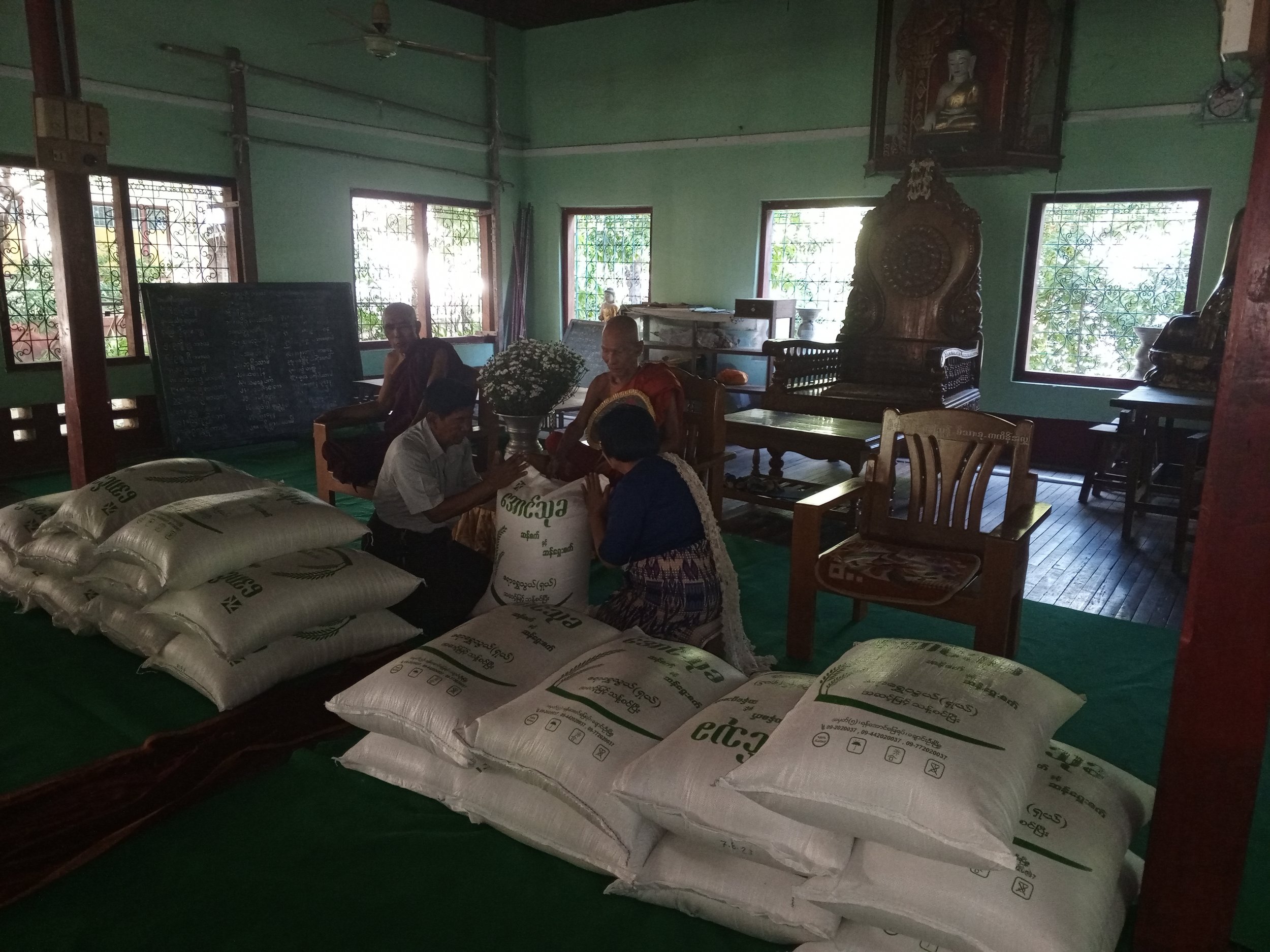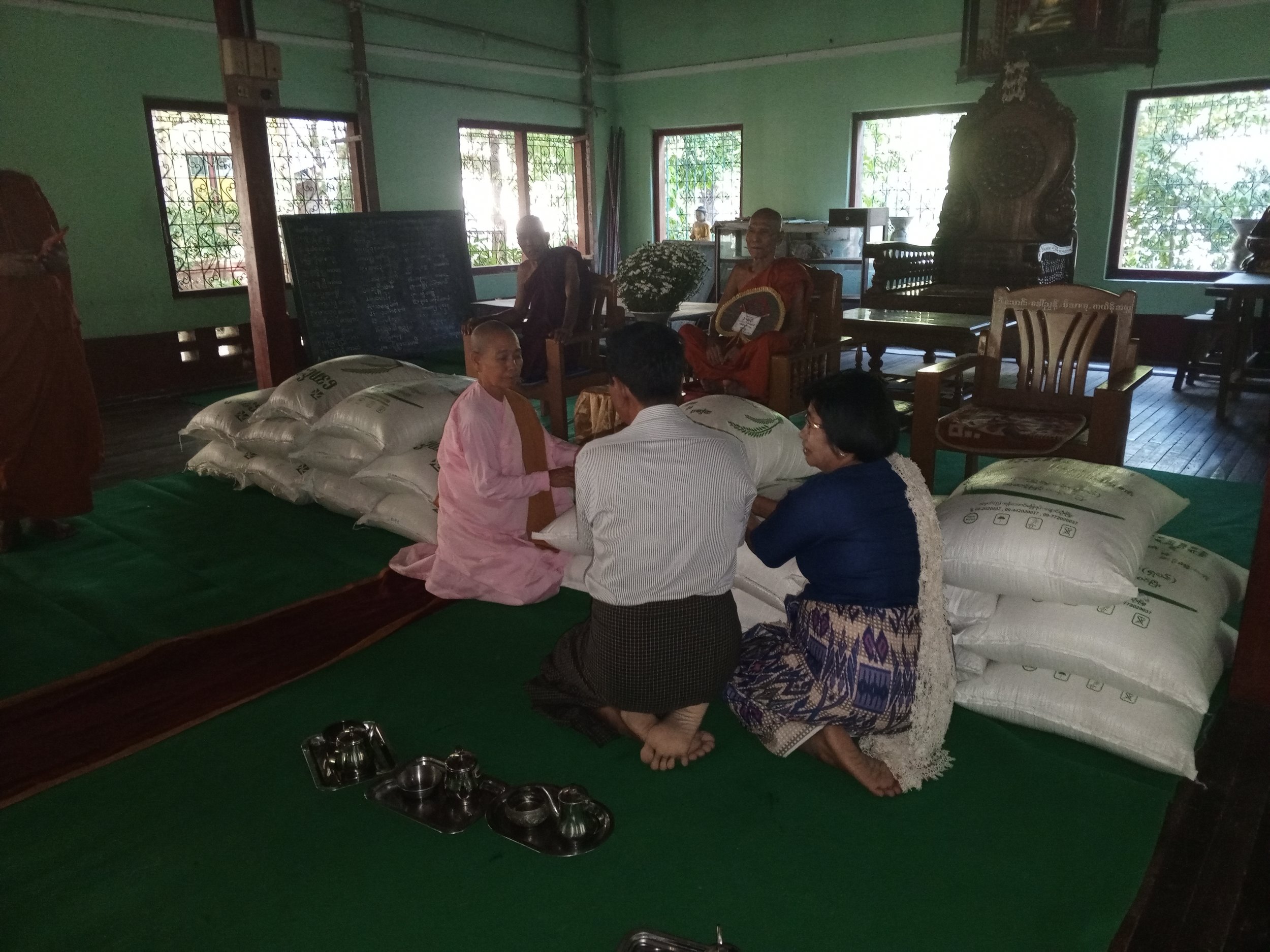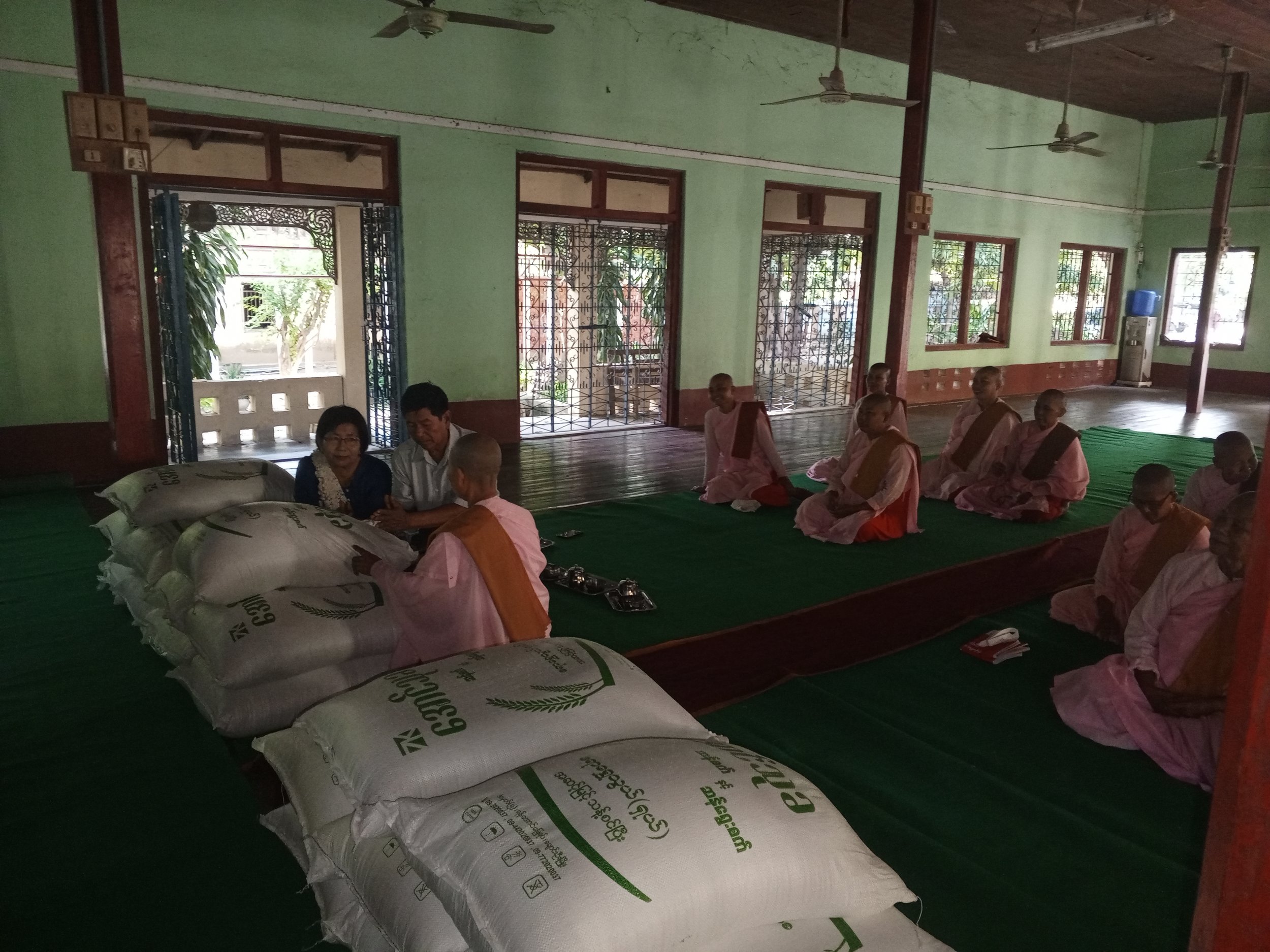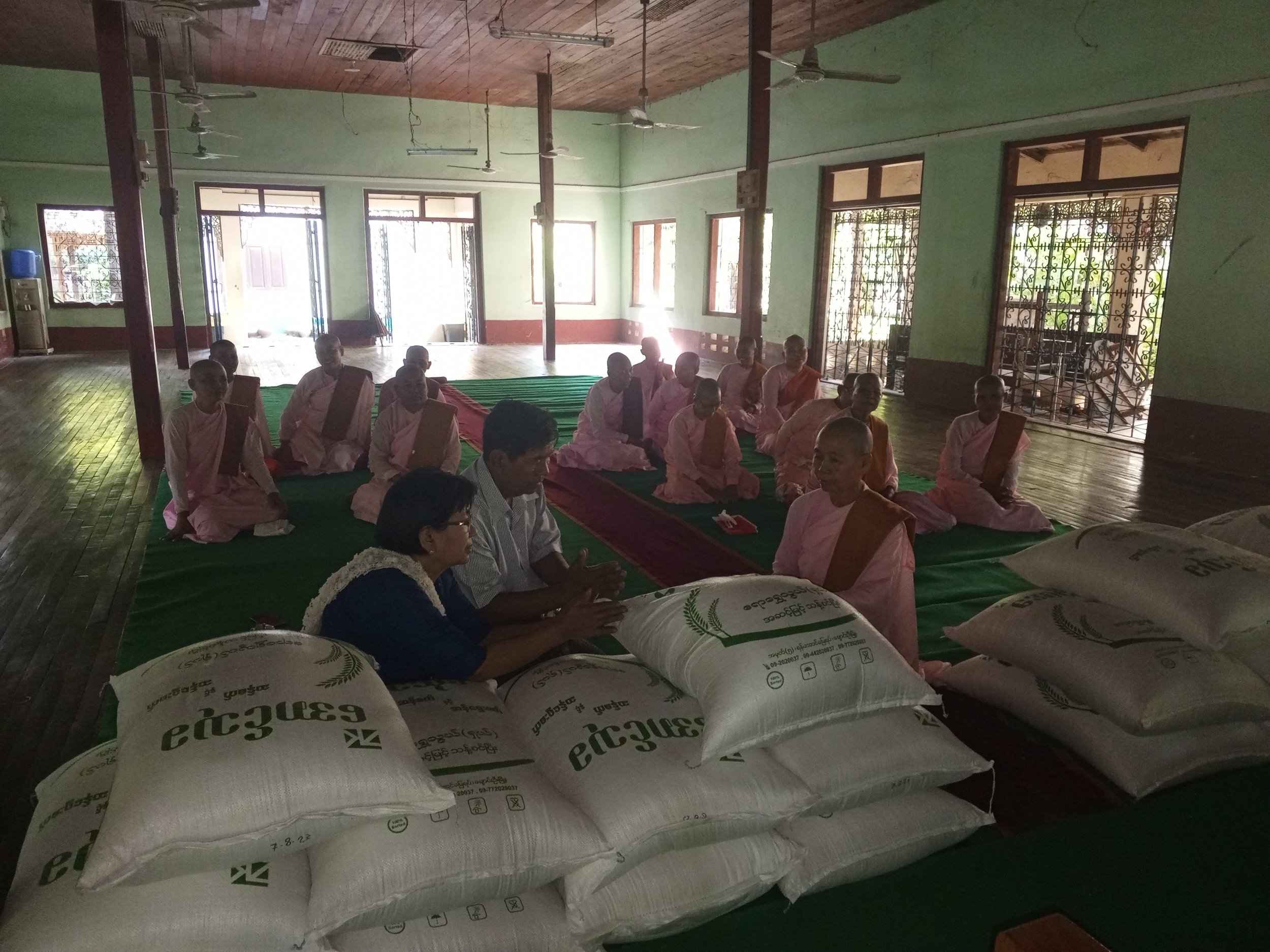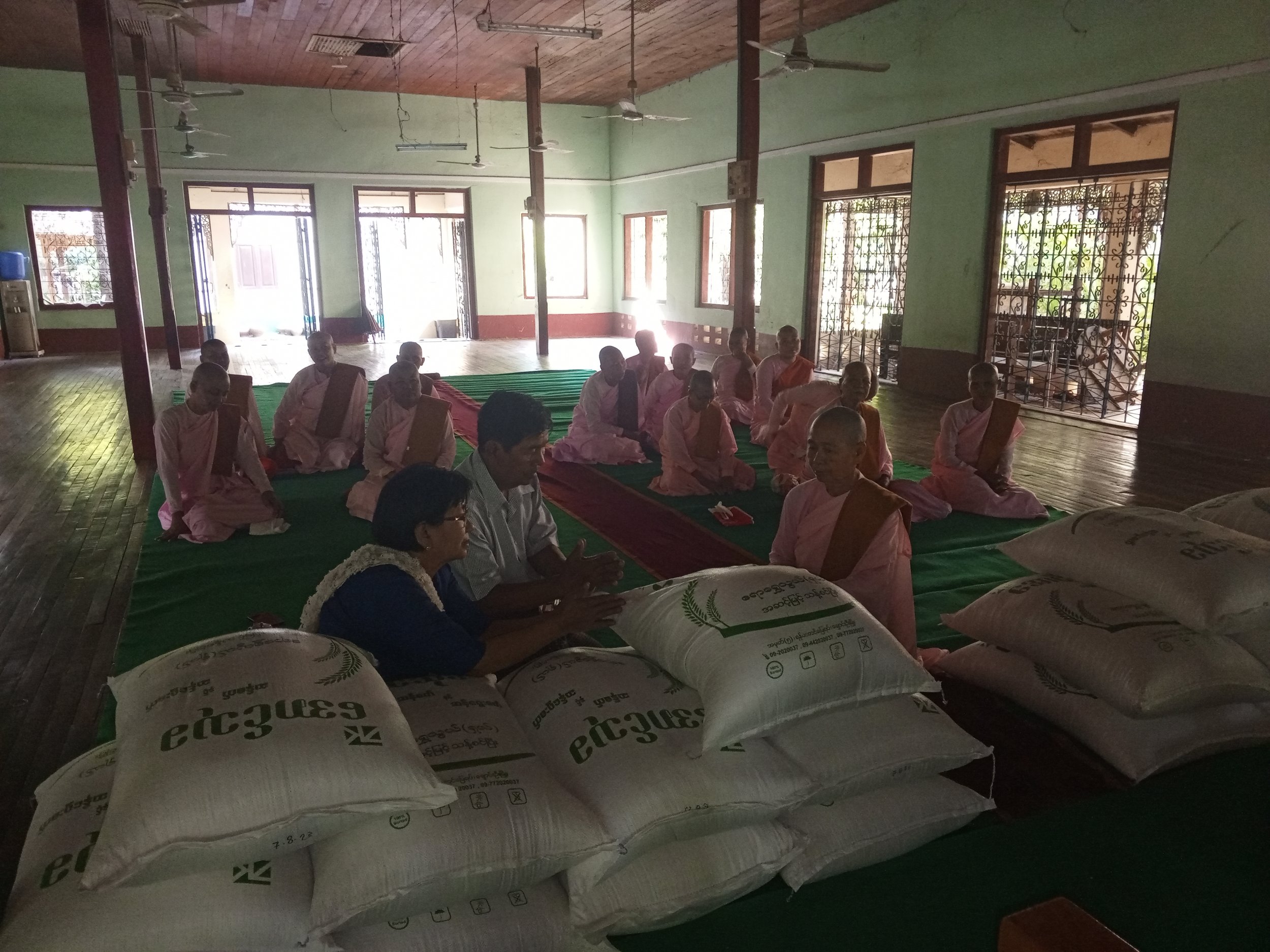Monasteries and Nunneries in a Conflict Zone
Our local team leader recently oversaw the distribution of essential food relief to regional monasteries and nunneries, using earmarked funds that foreign meditators had donated. We are so grateful for this support, and request that anyone who would similarly like to make a contribution of any amount may consider helping in this way!
In spite of the many road insecurities and frequent armed encounters, I recently traveled back to the Monywa region to help monastics and nuns, as we’d heard about their food insecurity. We learned from our friends that the abbot of the monastic school where I volunteered as a teacher some years ago has moved into an urban monastery as guests with his young novices. However, due to the armed encounters between the military troops and the local people’s defense forces near his monastery, he and his young novices could no longer live there and moved up to the town. The military troops planned to take camp at his now-vacated monastery but the local people's defense forces prevented them, causing armed encounters around his monastery almost every day over the last month. As a result, the abbot has not dared to return to his monastery with his young novices until today. To help him and his 21 novices, we contributed 5 sacks of rice for them.
We truly feel sympathy to hear his situation wherein he cannot peacefully perform his regular religious tasks such as chanting Suttas, taking meditation and teaching novices in his own monastery, and his desire to return there as soon as possible. He is also feeling sorry to burden the host monastery during these challenging times when it already has its own monks and novices to care for.
Additionally, the nearby, 120-year-old Pali University monastery has also been experiencing a shortage of food. Before the coup, the abbot’s monastery (referred to above) used to support the university monastery with 60-70 sacks of rice every year, and the abbot, himself, studied his monastic education at the university. Annually, the local farmers from the villages around the abbot’s monastery, its lay sponsors, contributed tons of rice for the monastics and nuns in the university monastery. So because of the difficulties the abbot’s monastery has been facing, the university monastery has also been facing food shortages. Therefore, we contributed 5 sacks of rice for 64 monks and novices residing and studying there. Moreover, we contributed 6 Pyi (2 kilos) of rice for each nun there.
We also invited monks from yet another, large monastery in a remote, rural area of our township so we could donate 5 sacks of rice to them. The founding abbot of that monastery passed away during the third wave of covid and his younger brother succeeded him as the abbot. The young abbot said that his monastery was continuously supported by his older brother's friend, the abbot of a big pariyatti monastery with 98 monastic residents. The assisting monastery itself has started to face a shortage of rice and its lay sponsors have started to grow rice in their own fields to be able to continue to support the monastery, so that pariyatti monastery is not in such dire need.
However, the young abbot also said that otherwise, it is truly rare nowadays to receive rice sack donations from local farmers, so this donation from international meditators is “a pair of golden hands” for them, and a big inspiration. He said that several times, he sought his deceased brother’s inspiration, pleading for help when he lost his confidence in overwhelming situations. He believes that his brother heard him, and helped him this time, too.
It's truly delightful to have been able to donate to these monasteries and nunneries in my hometown, in these worsening circumstances. It's truly a more noble act to fill an empty pot than a full one. We were very glad to help out these monasteries!
